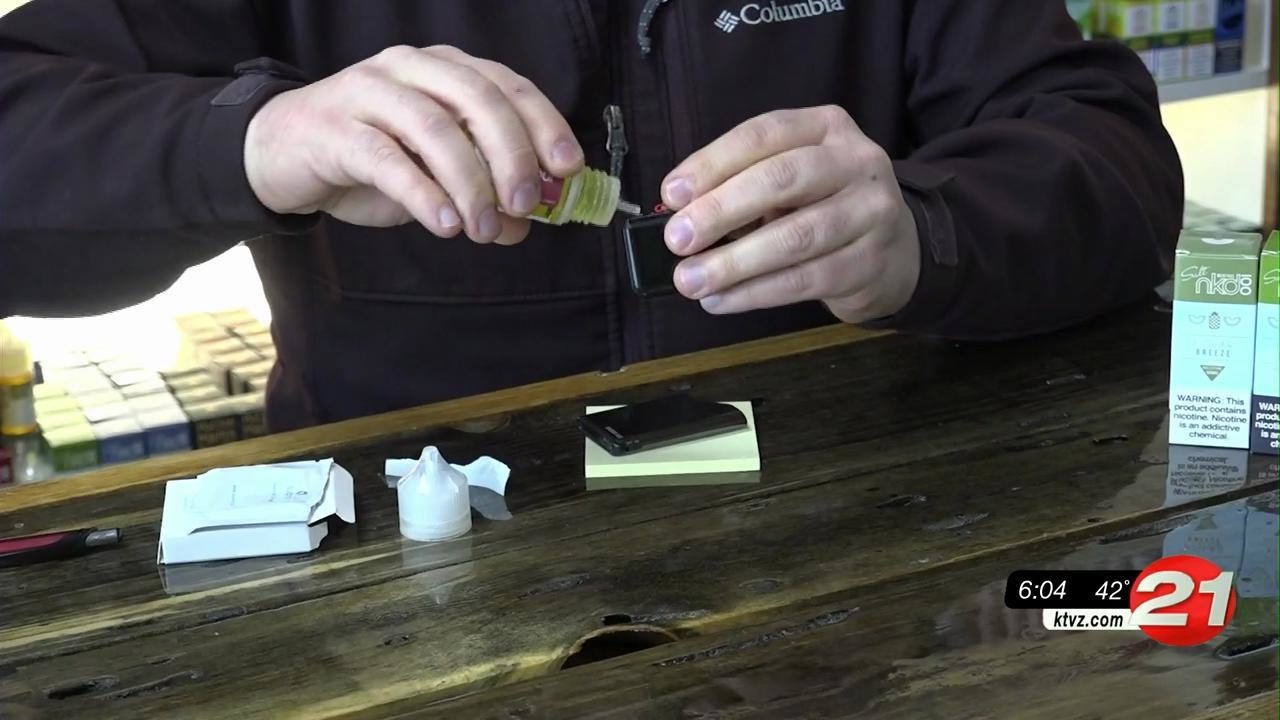Redmond shop shares what’s in flavored vape products

Cause for illnesses still unknown
REDMOND, Ore. (KTVZ) -- The outbreak of lung illnesses and deaths related to flavored vape products, including two deaths in Oregon, is pushing lawmakers across the country to impose stricter regulations on tobacco alternatives.
KGW, an NBC affiliate station in Portland, commissioned a Portland-based lab, Lightscale Labs, to test six different vaping cartridges. According to the station, the tests found 130 common chemicals, including pesticides and carcinogens, as well as Vitamin E acetate.
In October, Gov. Kate Brown ordered a six-month ban on flavored vape products in Oregon.
According to the U.S. Centers for Disease Control and Prevention, there have been more than 1,800 reported illnesses related to vaping and 37 people died due to vaping. Two of those deaths were reported in Oregon.
The CDC says doctors and researchers have not yet determined what exactly is to blame for the illnesses and deaths. Still, e-cigarettes remain popular alternatives to tobacco.
Dr. William Bowerfind, a pulmonologist at the Oregon Clinic, told KGW he recommends people who have never smoked not to touch vaping products.
“It’s just not worth doing that chemical experiment in the body," Bowerfind said.
According to the 2018 National Youth Tobacco Survey, at least 3.6 million people under the age of 21 reported using e-cigarettes containing nicotine. That’s up from the 2 million teens who reported using e-cigarettes in 2017.
NewsChannel 21 spoke Wednesday with Matthew Rock, the owner of Inhale Exhale Smoke and Vape in Redmond. He said he “applauds Oregon for raising the age (to buy e-cigarettes) to 21.” He said common ingredients found in e-juices include propelyne glycol, vegetable glycerin and nicotine.
“The thing is, smoking is addictive not only on a physical level but also on a mental level,” Rock said. “When people socialize, when people are nervous, consuming adult beverages, we see the use of tobacco products and the use of vaping products increase in those situations.”
According to Rock, Inhale Exhale Smoke and Vape does not sell products containing tetrahydrocannabinol, more commonly referred to as THC.
THC is the main psychoactive compound in marijuana that contributes to the “high” effect. Cannabidiol, or CBD, is also found in marijuana but does not contain the psychoactive component.
A study published in February found some e-liquids contained 34 percent cinnamaldehyde, a chemical that damages lung cells.
“When you get to levels like that of a compound like cinnamaldehyde, having some lung difficulties isn’t very surprising,” says study co-author James Pankow, a chemist at Portland State University in Oregon.
Rock said the mission of his shop is to help people quit smoking tobacco and nicotine. He said THC products do not help with that process.
So, what’s contributing to vaping-related illnesses? The CDC says the cases reported overwhelmingly involved black-market THC. Rock said despite the differences in FDA-approved ingredients and the ones sold on the black market, businesses and consumers have been harmed.
NewsChannel 21 contacted the company JUUL for comment, but we have not yet heard back.
“The reactionary executive order that Kate Brown put out is so incredibly harmful on so many levels,” Rock said. “Hurting not only retailers, hurting also the hundreds of thousands of vapers in Oregon that rely on this technology to live healthier lives.”